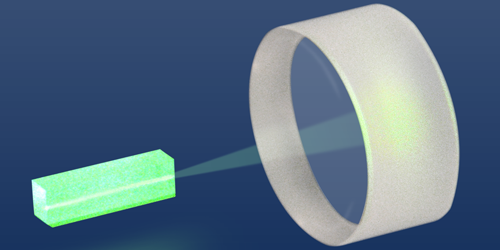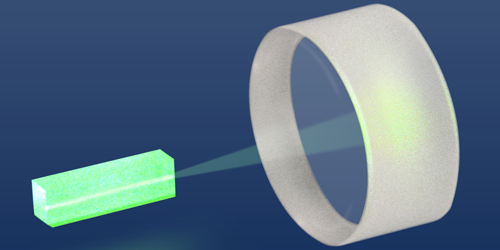A Tight Squeeze
Squeezed quantum states of light can have better noise properties than those imposed by classical limits set by shot noise. Such states might help researchers boost the sensitivity of gravitational-wave (GW) detectors or design more practical quantum information schemes. A team of researchers at the Institute for Gravitational Physics at the Leibniz University of Hanover, Germany, has now demonstrated a method for squeezing noise to record low levels. The new approach—compatible with the laser interferometers used in GW detectors—may lead to technologies for upgrading LIGO and similar observatories.
Squeezed light is typically generated in nonlinear crystals, in which one pump photon produces two daughter photons. Because the two photons are generated in the same quantum process, they exhibit correlations that can be exploited to reduce noise in measuring setups. Quantum squeezing can, in principle, reduce noise to arbitrarily low levels. But in practice, photon losses and detector noise limit the maximum achievable squeezing. The previous record was demonstrated by the Hanover team, who used a scheme featuring amplitude fluctuations that were about a factor of 19 lower than those expected from classical noise (12.7 dB of squeezing).
In their new work, the researchers bested themselves by increasing this factor to 32 (15 dB of squeezing), using a light-squeezing scheme with low optical losses and minimal fluctuations in the phase of the readout scheme. The squeezed states are obtained at 1064 nm, the laser wavelength feeding the interferometers of all current GW observatories.
This research is published in Physical Review Letters.
–Matteo Rini
Matteo Rini is the Deputy Editor of Physics.





